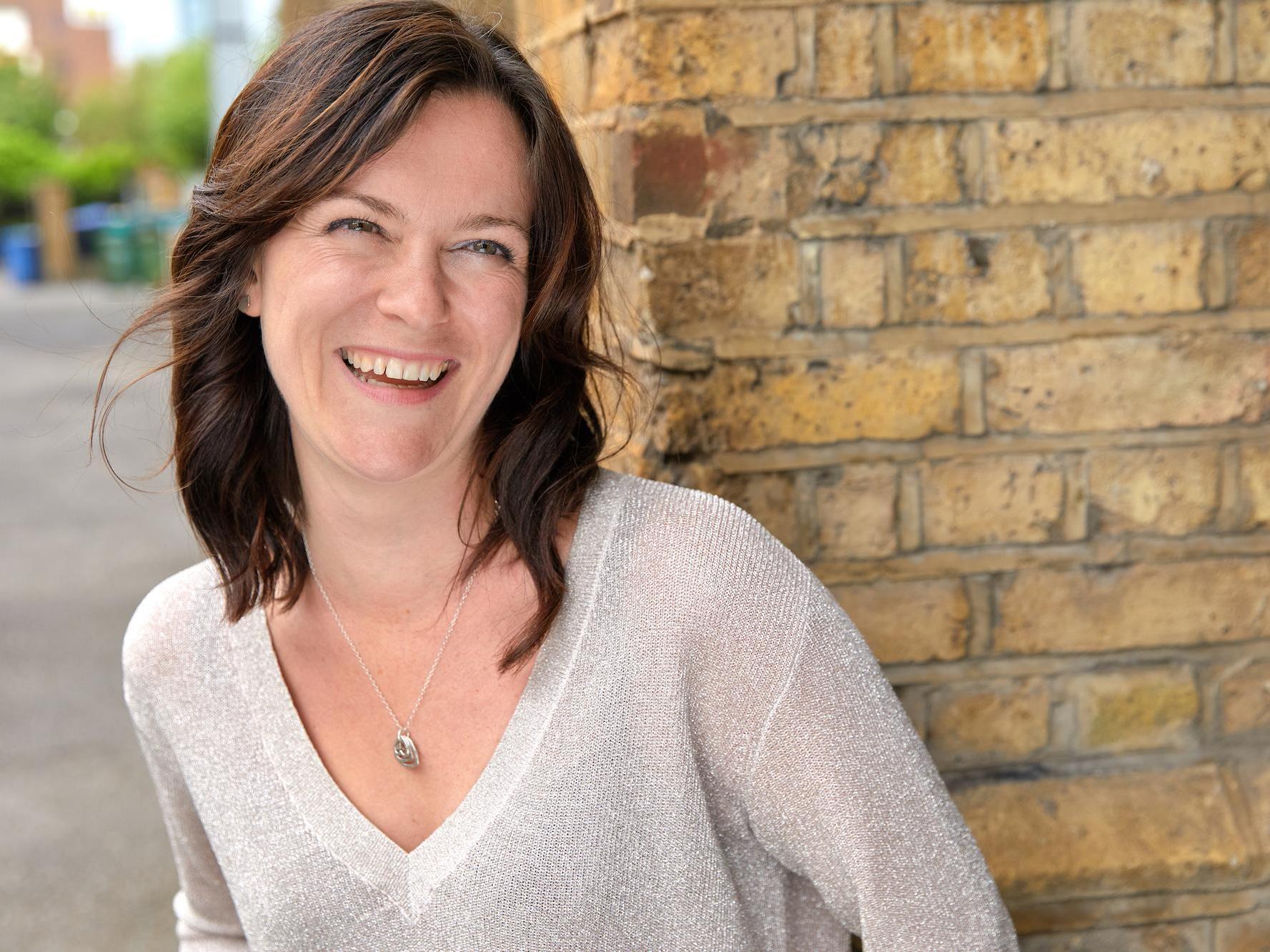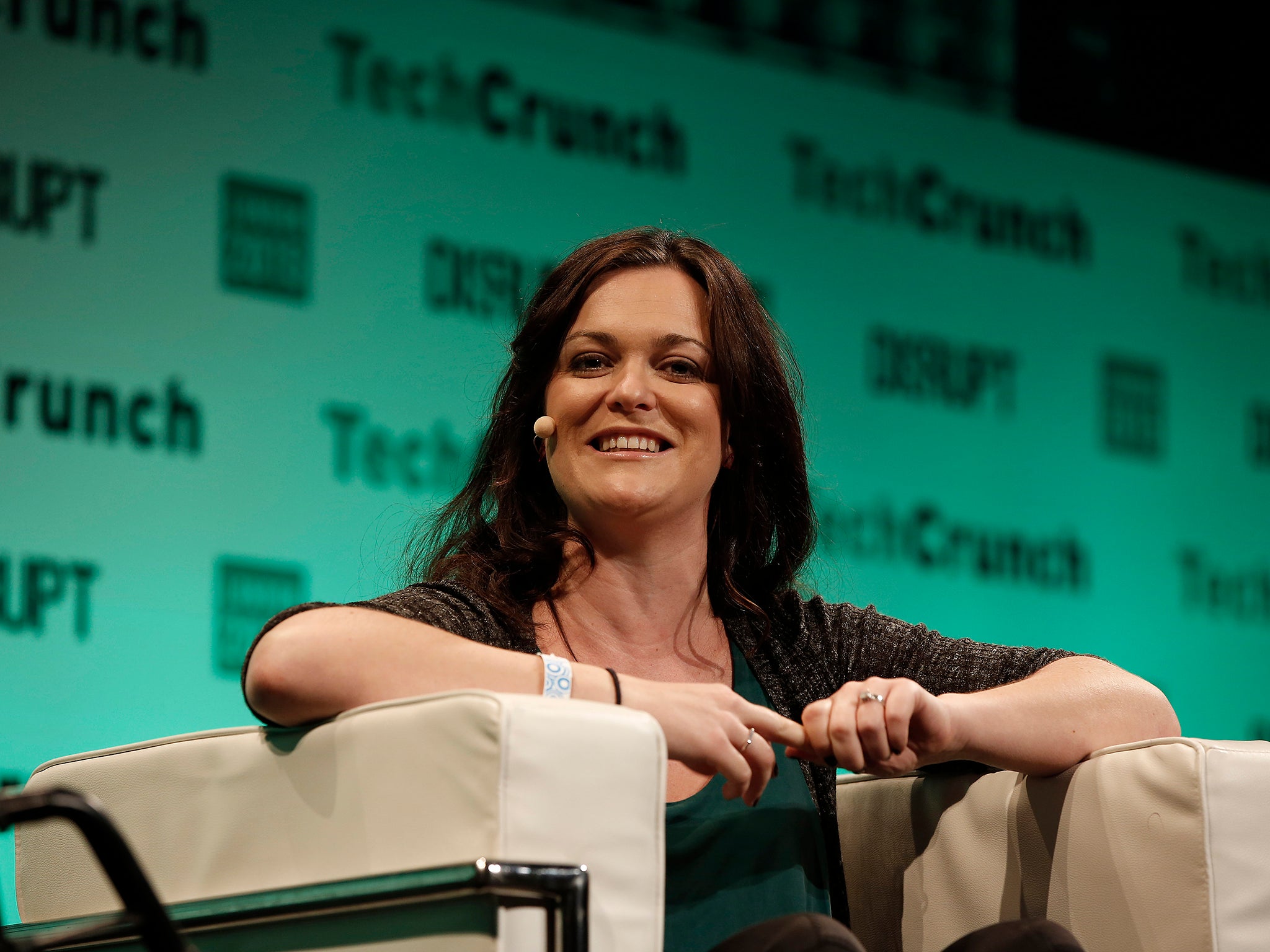A View From the Top with Resi home-improvement site co-founder Alex Depledge
The entrepreneur tells Zlata Rodionova how her burnout prompted her to launch two successful startups and what worries her about Brexit


Alex Depledge knows a thing or two about start-ups and what it takes to make them a success.
The Bradford-born serial entrepreneur first made a name for herself with home-cleaner booking website Hassle that she co-founded with her former colleague Jules Coleman.
Their business idea was born in 2011, after a phone conversation in which Coleman complained about the difficulty of finding a good piano teacher online. The two had long been thinking about leaving their jobs to launch a business of their own and suddenly the opportunity was there.
They realised that consumers couldn’t rely on local advertisements to find services such as private teachers or cleaners, so together created a digital platform to make the process simpler.
In just two years, the entrepreneurs were responsible for taking the business from inception to over £8m in turnover, making them the rising stars of the UK’s start-up scene in the process.
The duo went on to sell the online platform for a reported £27.5m in 2015. Then about 18 months later they set up the UK’s first online architecture service Resi, despite saying they would “never start a business again”.
Their new venture provides affordable design and planning advice to anyone considering home extension, conversions or new builds. The company effectively replaces what an architect would do during the early stages of a potential project, making the process of extending or improving a home faster and cheaper.
But Depledge’s route to success wasn’t always as smooth as it seems. After graduating with a history and American studies degree from the University of Nottingham, she moved to the US and did a master’s degree at the University of Chicago. She returned to the UK in 2005 to work as a consultant at Accenture.
“I joined consulting because I thought it would offer me the variety I was looking for at the time. I didn’t know what I wanted to do and it did provide great training in terms of core business skills.”
But despite the company’s reputation for being an inclusive employer, Depledge, who is now a mother-of-two, felt it wasn’t a friendly work environment for a woman who wanted both a family and a career.
“Women who chose to have a family either had to put their career on hold or never see their children to climb up the corporate ladder. Neither of these options were good enough for me.
“I wanted a career and a family and I wanted it on my own terms. Sadly, if that’s what you want to do, you don’t currently have another option than to run your own business.
I wanted a career and a family and I wanted it on my own terms
“This doesn’t give you a lighter workload by any stretch but it does offer you the freedom over your own time and how you spend it. You can make your family fit around work or work fit around your family.”
In 2011, she also ended up burning out and had to take three months off work – another reason that prompted her to quit her job. “I often think people will stick with the status quo until it becomes completely unbearable. That’s when we’ll make decisive change, whether it’s divorce, moving countries or changing jobs.
“The burnout was a big wake up call for me, I realised that not everything was my career, my actual mental wellbeing was at stake.”
“I think it’s actually pretty common for people to have some sort a breakdown when they are approaching their thirties. It’s when people suddenly realise they’ve been on this treadmill for years. You start with your GCSEs, then A levels, degree, grad placement, corporate job and then there’s no pattern on how to navigate parenthood, marriage or work and you have to find your own way through it, so lots of people can’t cope and burn out at that time.”
But despite the rapid growth and subsequent sale of Hassle, the entrepreneur said she never felt like she fully achieved success with her first business. “The time between inception and sale was so short, I never felt like the business has ran its full course,” she says.
In the run up to the sale, Depledge also had a baby: “We sold in July 2015 and spent six months inside the company doing the transition before finally leaving in December. By January, I couldn’t get a minute of sleep, my baby was 10 months old and I felt very depressed.

“My entire identity derived from that business. I had to drive myself out of that bleak kind of outlook and figure out the answer to the question: ‘What do I do now?’. Every single month of that year I booked a holiday somewhere with my daughter, we had a wicked year and I also thought I would never grow a business again because it literally saps your entire life in a pretty brutal way.”
But after spending some time as an adviser to the venture capital firm Index Ventures, Depledge had a “light bulb moment”.
“I was looking to build an extension, while Jules Coleman was looking to renovate a house she had just bought. So we were both facing our own challenges and then one of the companies came in from the Nordics and they had this 3D software that took 2D floor plans and popped them into renders.
“I was sitting there thinking, why didn’t my architect use that kind of functionality to help me do this extension on my home? Why are we not applying that sort of technology into the residential home sector?”
After some research the pair launched their new venture in January 2017 and since then the business has only gone from strength to strength.
What’s been lovely with Resi, is that we’ve been able to take all the stuff we know we did really well at Hassle and use it here
For Depledge, starting a second business was about giving back to the community as much as it was about personal pride. “I think we needed to prove ourselves that we could run and grow a good business. What’s been lovely with Resi is that we’ve been able to take all the stuff we know we did really well at Hassle and use it here,” she says.
“We also made sure we avoided what wasn’t quite right or frustrated us with our first venture. The second time around, we kind of knew what we were doing.”
Both entrepreneurs were now a little wiser and the change of pace is what made the big difference between their first and second venture, according to Depledge.
Following the Brexit vote in 2016, a conscious decision was also made to keep Resi focused purely on the UK market.
“The Silicon Valley culture is very aggressive and feels like a constant race. It’s all about being the first to internationalise, raising investment and being first to market. But I think the most important thing is to execute your idea correctly.
“So that’s why we only operate across the UK with no immediate plans to go abroad. If we do it right here then taking it to the US or Australia will actually be much easier.
“We also haven’t raised anywhere near the amount of money that we could have because we realised that we had the right size financing. There are multiple ways to grow a business and what you have to do is work out what is the right way for you. I couldn’t ingest £25m tomorrow and spend it efficiently.”
Having launched Resi in the shadow of the EU referendum result, Depledge says her business is pretty much Brexit-proof, but she does worry about the future of her employees.
“I totally get the people who voted to leave. I am from Bradford, most of my family voted to leave the EU and I get it. These voters live in economically-deprived areas that have been stripped of industry and nothing has gone into them. But that’s not the European Union’s fault, that’s central government.
“Society without history is like a man without memory and I feel like our politicians have completely lost that. They are not looking into the past to see why this is a bad idea. It became an act of self-determination.”
“At Resi, we have a very diverse set of employees and some of them don’t feel that welcome in the country anymore. Others have gone through the naturalisation process or they are currently applying for their definitive right to stay in the UK. It’s difficult for me because I want everyone who works hard to feel welcome here, no matter where they come from.”
Resi brought in around £1m in revenue last year and now employs around 50 staff – but Depledge says professional success doesn’t come without a few sacrifices.
“People think you can’t have a family and a career as a woman. I think you can but it’s hard and what it means is that sacrifices go elsewhere – holidays, friends, fitness – but they are the trade-offs I am prepared to make.”
“I don’t get to see my friends as much as I would like to. But it means I do appreciate these moments when I am sitting with my girlfriends with a glass of wine and we are having a giggle because it just doesn’t happen that often.”
The entrepreneur is now focused on growing her business further and making it as inclusive as possible. For example, Resi currently offers the same amount of maternity and paternity leave and Depledge also hopes to introduce emergency childcare, so that her employees no longer have to miss out work when they have a family emergency.
She is keen to inspire more women to take the lead, which is one of the reasons why she recently took part in Secret Leaders – a business podcast that dives deep into the stories of top CEOs, their brands and their personal lives.
“Podcasts are becoming the new medium, maybe because people have less time to read and are commuting longer. It’s a good space for in-depth journalism that is harder to find on paper and online.”
In addition to their media engagement, Depledge and Coleman will meet around 300 women founders a year to give them the support and advice they need.
“Both Jules and I feel that some sort of moral obligation to stand up and be counted as female entrepreneurs, so all the women behind us – so to speak – have more opportunities than we did.
“If we didn’t have the support we did, when we started we wouldn’t be where we are. Now we are in a position where we can turn around and pull the next girl up. We need female role models across the spectrum.”

Alex Depledge features in series 2 of the UK’s leading business podcast, ‘Secret Leaders’ – founded by Dan Murray-Serter and Rich Martell. Season 3 is now live, and listeners can subscribe on iTunes and Spotify
Join our commenting forum
Join thought-provoking conversations, follow other Independent readers and see their replies
Comments
Bookmark popover
Removed from bookmarks